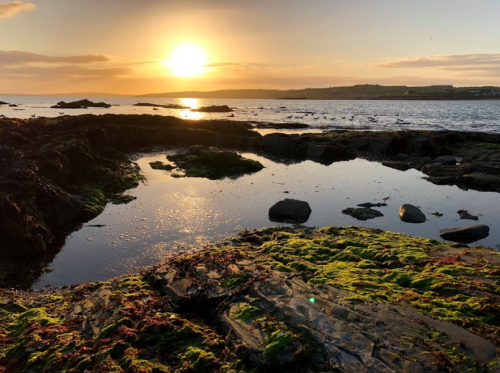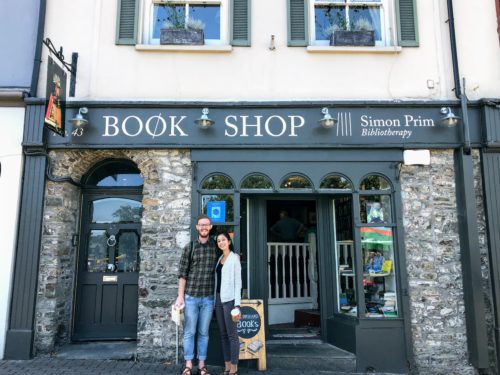These days I am obsessed with opening sentences. The fixation took hold one of my early days in Ireland, when I read an article in the New York Times that began with the following line:
“The puppet maker Mirek Trejtnar clip-clopped a red-nosed marionette across a makeshift plywood stage in his studio in Prague.”
The rest of the article doesn’t matter— in short: visit Prague. But after reading this musical sentence, I found myself looking carefully at opening sentences everywhere. I repeatedly asked myself how the best ones made my eyes race to read on and why others fell flat.
The metaphor of my fixation on opening sentences isn’t lost on me; with the past two months marking the very beginning of my Mitchell year, my Irish entrance is on my mind.
I am treating my move to Ireland as an opportunity to freely explore interests I would have shied away from in the past. This resolution leads me to the Mardyke Arena, UCC’s gymnasium, twice weekly to throw jabs and hooks at kickboxing practice, and back again for a whirlwind education in Irish dance where I learn steps whose names vary wildly in descriptiveness from “1-2-3s” to gems like the “hop, hop back, hop back 2-3-4”.
I have found a unique combination of time and space to read and write and think in Ireland that always seemed to evade me back in Boston. My days here are filled with art and conversation. There’s so much music, everywhere around me. Admittedly, some of it is calculated: I have started taking weekly fiddle lessons with Paul, who is teaching me how to relax from classical violinist into a bona fide Irish fiddler. Other times it is less intentional— we celebrated the Guinness Cork Jazz Festival at the end of October, and the entire city buzzed with energy late into the night.
I often think back to the first day of my classes in the School of Public Health, which our professor opened with a friendly inquiry into how we were finding Ireland. “I hope you all have a place to stay,” she remarked.
Others instantly erupted into conversation about difficulties in securing local housing and shared tales of endless apartment visits and extended stints in hostels. Our professor paused to explain the Irish affordable housing crisis to the international newcomers, and from my desk, I felt firsthand a sense of the complexity and scale of the national issue.
Much of my learning about the society around me happens in moments like this, between lectures, running laps at kickboxing practice with Irish friends, and other unexpected places where conversation unfolds readily. The world feels like my classroom. After my meander down Oliver Plunkett Street in Cork one morning turned into an hour-long conversation with the owner of an antique shop, it became abundantly clear that the prevailing sentiment in Ireland is that everybody is worthy of a conversation.
Here, I have also become an avid writer. Multitudes happen every day. Looking back on the opening lines of the 65 short daily essays I have written since landing on Irish soil, I see snippets of days that delighted me, like the first time I heard a musician play the button box and declared myself an accordion enthusiast on the spot. Other days have challenged me, as I question matters of identity, purpose, and ideology that come along with any major life change— a move to Ireland included. Still more have left me enthusiastically anticipating the next. The months to come are unwritten, but I find that beginnings often set the tone for what will follow.

I live on this beautiful island! This simple fact still amazes me essentially every day.

Kinsale, which James and I visited back in September, made a serious bid for the title of my favorite Irish town. We missed Hadley, who arrived in Ireland a few weeks later! I’m so grateful for both James and Hadley– they make Cork feel like home.
